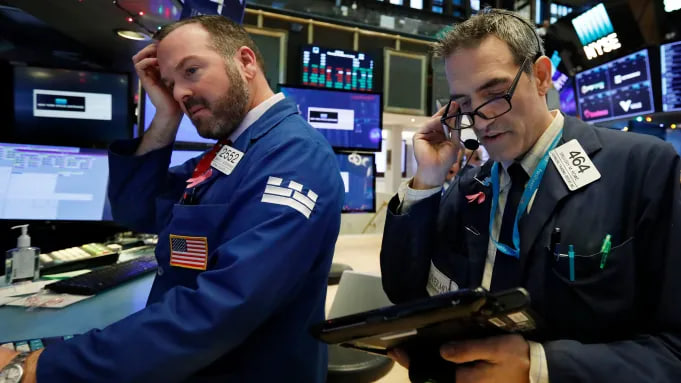Germany's Automotive Crossroads: Navigating the Volkswagen Crisis and Reshaping the Future of German Manufacturing
Meta Description: Volkswagen crisis, German manufacturing, government intervention, labor negotiations, economic restructuring, IG Metall, Hubertus Heil, economic stimulus, future of German auto industry.
The air in Germany is thick with tension. It's not the usual pre-Christmas chill; this is a different kind of frost, a deep freeze gripping the heart of German manufacturing – a sector once synonymous with unwavering quality and global dominance. The Volkswagen crisis, a perfect storm brewing for months, has suddenly threatened to engulf not just the iconic automaker, but the very fabric of the German economy. This isn't just about job losses, folks; it's about the future of a nation's identity, its economic stability, and its potential for global competitiveness. We're diving deep into the heart of this crisis, analyzing the intricate dance between labor unions, government intervention, and the stark realities of a rapidly evolving automotive landscape. Prepare for a rollercoaster ride – we'll explore the high-stakes negotiations, the unprecedented government intervention, the long-term structural issues plaguing German industry, and the potential pathways toward a brighter future. We'll peel back the layers of complexity, examining the role of sky-high energy costs, the challenges of transitioning to electric vehicles (EVs), and the crucial need for innovation. This isn't just another news story; it's a case study in how a nation grapples with the complexities of economic transformation, worker rights, and the enduring legacy of its industrial powerhouse. So buckle up, because this one's a wild ride!
Volkswagen Crisis: A Deep Dive into the Heart of the Matter
The recent headlines paint a grim picture: Volkswagen, a titan of German industry, is teetering on the brink. Facing fierce competition, soaring energy costs, and the monumental shift towards electric vehicles, the company is seeking drastic measures. These measures, including potential plant closures, massive job cuts (we're talking tens of thousands!), and across-the-board pay cuts, have sparked outrage among workers and ignited a firestorm of debate. The iconic automaker's struggles aren't simply a company-specific issue; they're a stark reflection of deeper structural problems within the German manufacturing sector.
The situation escalated dramatically when Volkswagen initiated negotiations with IG Metall, Germany's powerful metalworkers' union. The union, representing a significant portion of Volkswagen's workforce, has vehemently opposed the company's proposed austerity measures, staging large-scale strikes in December. The stakes are undeniably high: thousands of jobs hang in the balance, and the outcome will have a ripple effect throughout Germany's economy.
The Government's Response: A Lifeline or a Band-Aid?
Enter Hubertus Heil, Germany's Labor and Social Affairs Minister. Faced with the potential for widespread unemployment and social unrest, the government is stepping in with a significant intervention. Heil announced plans to extend government aid to struggling companies, doubling the support period to a maximum of two years. This financial lifeline aims to preserve jobs and facilitate the necessary investments in the future, particularly in the transition to electric vehicles. This decision is a bold move, signifying the government’s acknowledgment of the systemic issues at play and its willingness to take decisive action to mitigate the crisis. However, some critics argue that this is merely a temporary fix, a band-aid on a much deeper wound.
The cabinet's upcoming decision on this financial aid package will be keenly watched, not just by Volkswagen employees and their families, but by the entire German nation. The success of this intervention hinges on its ability to address the underlying issues driving the crisis, rather than simply delaying the inevitable. Whether it’s enough to truly turn the tide remains to be seen.
High Labor Costs and the Transition to EVs: A Perfect Storm
Volkswagen's executives point to Germany's relatively high labor costs as a major contributor to its financial woes. This, coupled with the immense investment required for the transition to electric vehicles, creates a double whammy that challenges the company's profitability. The shift to EVs demands significant capital expenditure in research, development, and manufacturing – a steep hill to climb in an already competitive market. The transition is not just about swapping out combustion engines; it requires a fundamental overhaul of manufacturing processes, supply chains, and workforce skills.
The competition is fierce, with established automakers and newcomers alike vying for market share in the burgeoning EV market. Volkswagen needs to innovate, to efficiently produce high-quality EVs at competitive prices, and to secure its market position in this rapidly evolving landscape. The high labor costs certainly add to the pressure.
Beyond Volkswagen: Systemic Challenges Facing German Manufacturing
The Volkswagen crisis is a symptom of broader, systemic issues plaguing German manufacturing. The exorbitant energy costs, fueled by global energy market volatility, are squeezing profit margins across industries. This is exacerbated by a perceived lack of technological innovation in some sectors and relatively slow growth in labor productivity. Germany, renowned for its engineering prowess, needs to reassess its approach to innovation and invest heavily in research and development to stay ahead of the curve.
The German Economic Institute (Ifo) recommends a multifaceted strategy including tax incentives, increased support for research and development, and a robust commitment to green technologies. These measures aim to stimulate investment, boost productivity, and foster a more competitive business environment. Furthermore, a robust and adaptable workforce is crucial. Initiatives focusing on skills development and retraining programs are essential to equipping workers with the skills needed for the jobs of the future.
The Social Democrats' Vision: A New Era for "Made in Germany"?
The upcoming German elections are adding another layer of complexity to the situation. The Social Democratic Party (SPD), currently in a strong position, has outlined ambitious plans to revitalize German manufacturing. Their manifesto includes a 10% direct tax rebate on equipment investments for businesses, incentives for consumers to buy German-made electric vehicles (a clever move to simultaneously boost the EV sector and support domestic manufacturing), and a €100 billion fund to upgrade critical infrastructure, including power grids, heating networks, and charging stations. This ambitious plan, if implemented, could represent a significant shift in government policy, aiming to bolster domestic industry and secure Germany's position in the global economy. It signals a serious effort to tackle the challenges head-on and position Germany for future success.
Frequently Asked Questions (FAQs)
Q1: Will Volkswagen close German factories?
A1: While Volkswagen has proposed closing some German factories, the final decision is yet to be made. The ongoing negotiations with IG Metall and the government intervention will play a crucial role in determining the fate of these plants.
Q2: How many jobs are at risk?
A2: Volkswagen’s initial proposals suggested tens of thousands of jobs could be cut. The final number will depend on the outcome of the negotiations and the government's success in mitigating the impact of the crisis.
Q3: What is IG Metall's role in this crisis?
A3: IG Metall, Germany's powerful metalworkers' union, represents a significant portion of Volkswagen's workforce. They have strongly opposed the company's proposed job cuts and pay reductions, organizing large-scale strikes to exert pressure during negotiations.
Q4: What measures is the German government taking?
A4: The German government is proposing to extend financial aid to struggling companies, offering a lifeline to help them weather the storm and invest in the future. This includes extending the support period to up to two years. Further initiatives focused on economic stimulus and workforce retraining are also under consideration.
Q5: What are the long-term challenges facing German manufacturing?
A5: German manufacturing faces a confluence of challenges, including high energy costs, the need for increased innovation, the transition to electric vehicles, and the need to improve labor productivity. Addressing these issues requires concerted effort and investment.
Q6: What is the Social Democratic Party's plan to revitalize German manufacturing?
A6: The SPD proposes substantial investments in infrastructure, tax incentives for businesses and consumers (particularly for EV purchases), and a large fund to support critical sectors. Their goal is to stimulate investment, promote innovation, and strengthen the "Made in Germany" brand.
Conclusion: A Turning Point for Germany?
The Volkswagen crisis is more than just a corporate struggle; it's a defining moment for Germany. The outcome of the current negotiations will determine not only the future of Volkswagen but also the trajectory of German manufacturing and its capacity to compete on the global stage. The government’s response, while significant, will need to address the root causes of the crisis rather than just providing temporary relief. This situation highlights the complex interplay between economic realities, labor relations, and government policy, and provides a compelling case study of the challenges faced by established industrial powers in a rapidly changing global landscape. The path forward requires innovation, adaptation, and a commitment to investing in both the workforce and the future of German industry. The coming months will be crucial in determining whether Germany can successfully navigate this crisis and emerge stronger on the other side, or if this marks a turning point toward a less dominant position in the global automotive market. The world is watching.



